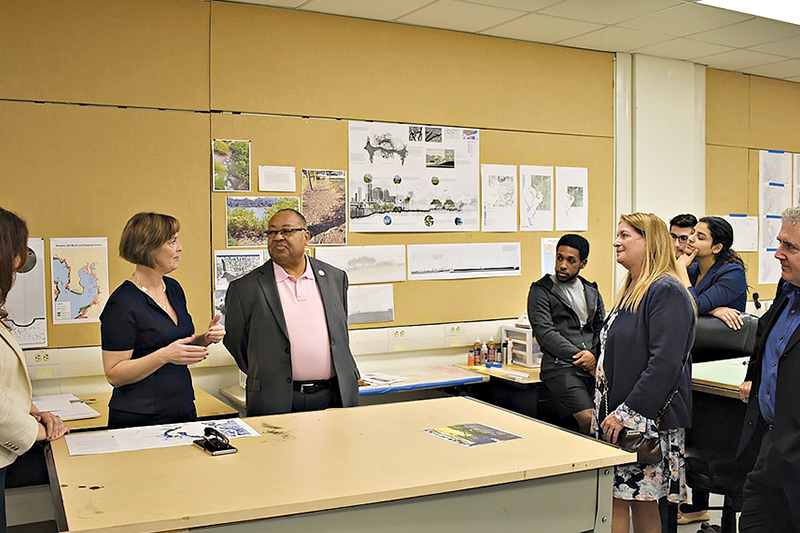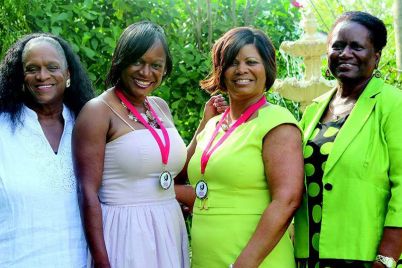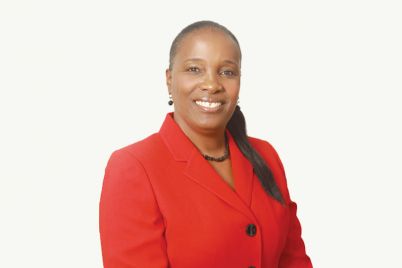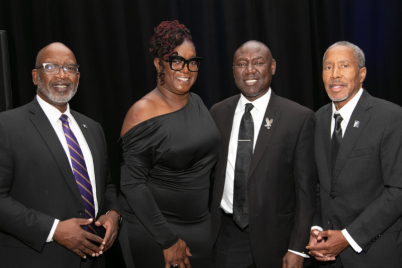WASHINGTON, D.C. — U.S. Rep. Kathy Castor (FL14), chair of the U.S. House Select Committee on the Climate Crisis, highlighted the importance of climate justice with her special guest to the State of the Union address Leon W. Russell, chair of the NAACP National Board of Directors.
The National Climate Assessment, jointly released by 13 federal agencies in Nov., noted that across all climate risks, low-income communities, communities of color and those experiencing discrimination are disproportionately affected by extreme weather and climate events.
“We must work with our neighbors and empower working-class communities across America as we build a clean energy economy and a just transition from fossil fuels. A clean energy future with quality jobs can lift and protect the health of disproportionately affected communities,” said Castor.
The NAACP is tackling the climate crisis as a human and civil rights issue because so many of our neighbors are exposed to industrial and carbon pollution. The climate crisis is already contributing to displacement, chronic health conditions and even death in low-income communities, communities of color and those experiencing discrimination.
“Taking on the climate crisis and attacking economic injustice go hand in hand. Low-income communities are more likely to be located next to a polluting facility,” Castor said. “Children and their families from low-income communities, communities of color, and those experiencing discrimination are then more likely to have high rates of asthma and other chronic diseases that lead to, among other things, learning difficulties and certainly missed days of school.
“Missed days of school lead to missed days of work for parents who are sick themselves or caring for sick children. These families are caught in a cycle that decreases their chances and the chances of even future generations to thrive and realize the American Dream. An urgent response to breaking this cycle will be a primary focus of my new Select Committee on the Climate Crisis.”
Leon W. Russell is from Castor’s home of Tampa Bay. He retired in 2012 from his longtime post of director of the Office of Human Rights for Pinellas County. He is the current chair of the NAACP National Board of Directors and has served as a member of the NAACP board of directors for 27 years.
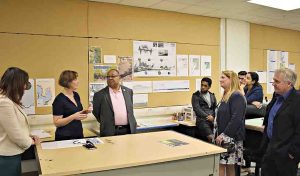 “The climate crisis disproportionately impacts communities of color, whether it’s flooding, displacement or proximity of industrial pollution sites near our communities increasing health-related problems or the failure to have equal access to economic opportunities in the green economy – our communities are suffering and caught in the middle,” said Chairman Russell.
“The climate crisis disproportionately impacts communities of color, whether it’s flooding, displacement or proximity of industrial pollution sites near our communities increasing health-related problems or the failure to have equal access to economic opportunities in the green economy – our communities are suffering and caught in the middle,” said Chairman Russell.
The NAACP Environmental and Climate Justice Program were created to provide resources and support community leadership in addressing this human and civil rights issue by advocating for these three objectives:
1. Reduce Harmful Emissions, Particularly Greenhouse Gases
We combine action on shutting down coal plants and other toxic facilities at the local level, as well as building of new toxic facilities, with advocacy to strengthen development, monitoring, and enforcement of regulations at federal, state, and local levels. Also includes a focus on corporate responsibility and accountability.
2. Advance Energy Efficiency and Clean Energy
We work at the state level on campaigns to pass renewable energy and energy efficiency standards while simultaneously working at the local level with small businesses, unions, and others on developing demonstration projects to ensure that communities of color are accessing revenue generation opportunities in the new energy economy, while providing safer, more sustainable mechanisms for managing energy needs for our communities and beyond.
3. Strengthen Community Resilience and Livability
We work to ensure that communities are equipped to engage in sustainability/climate action planning that integrates policies and practices on advancing food justice, advocating for transportation equity, upholding civil and human rights in emergency management, and facilitate participatory democracy.

